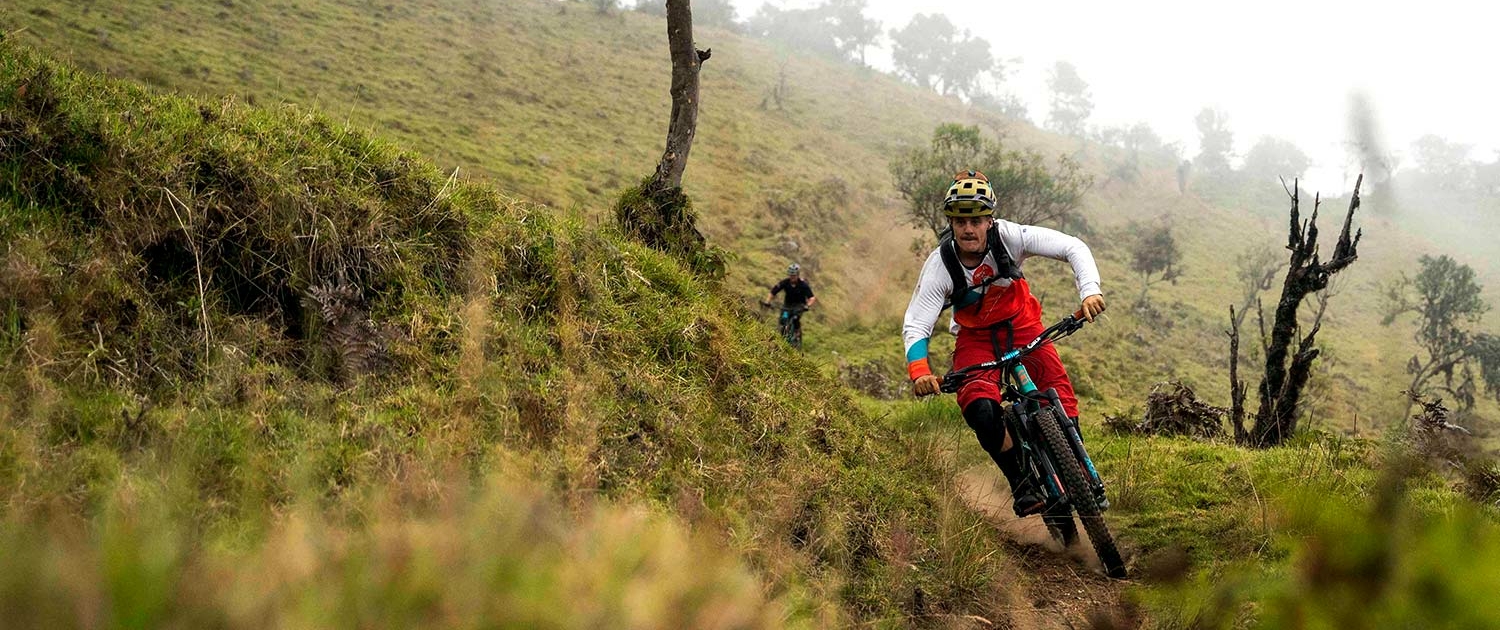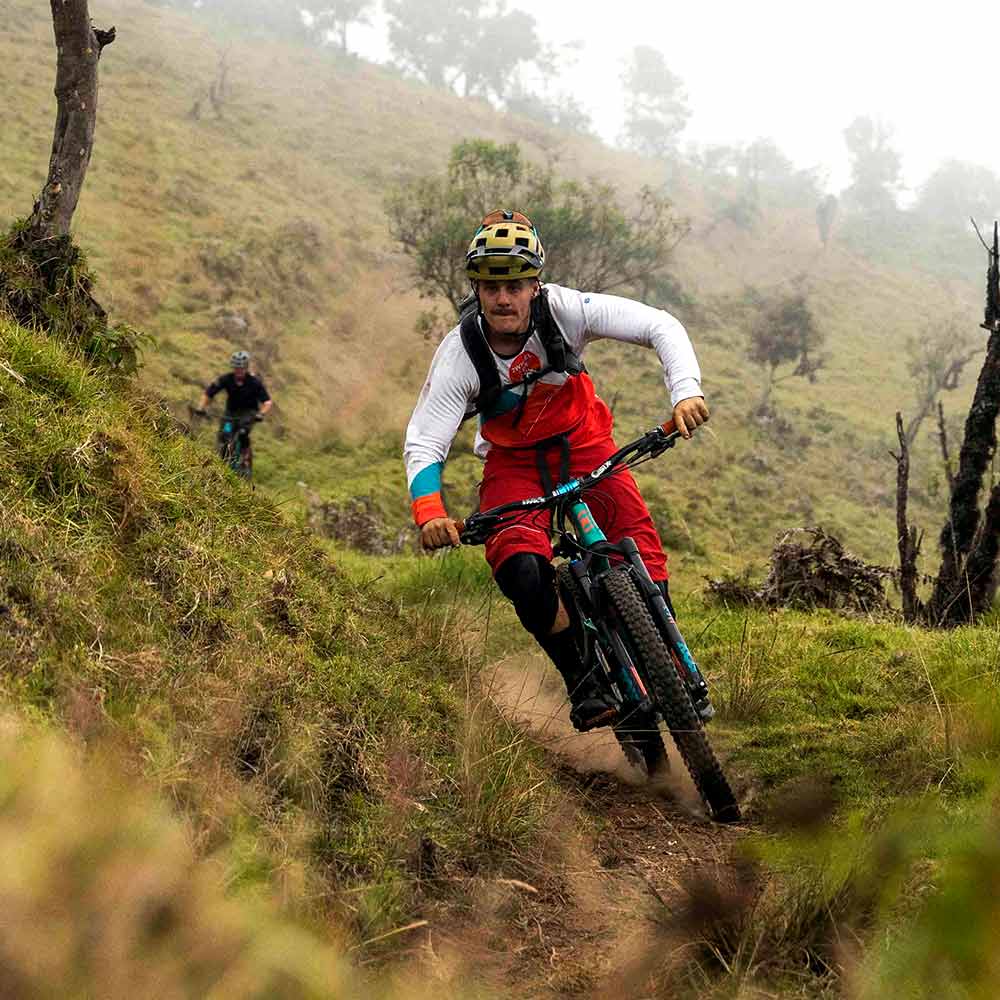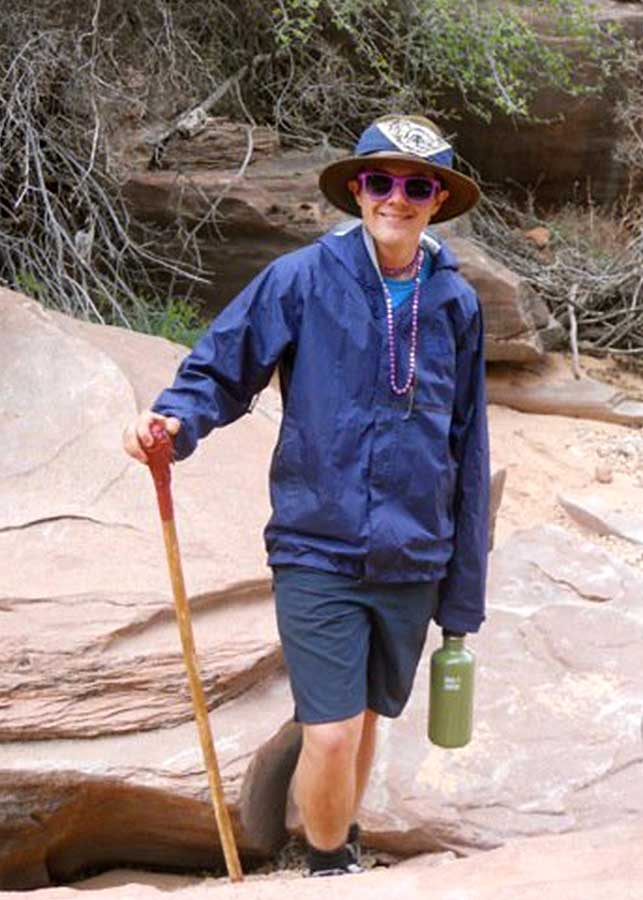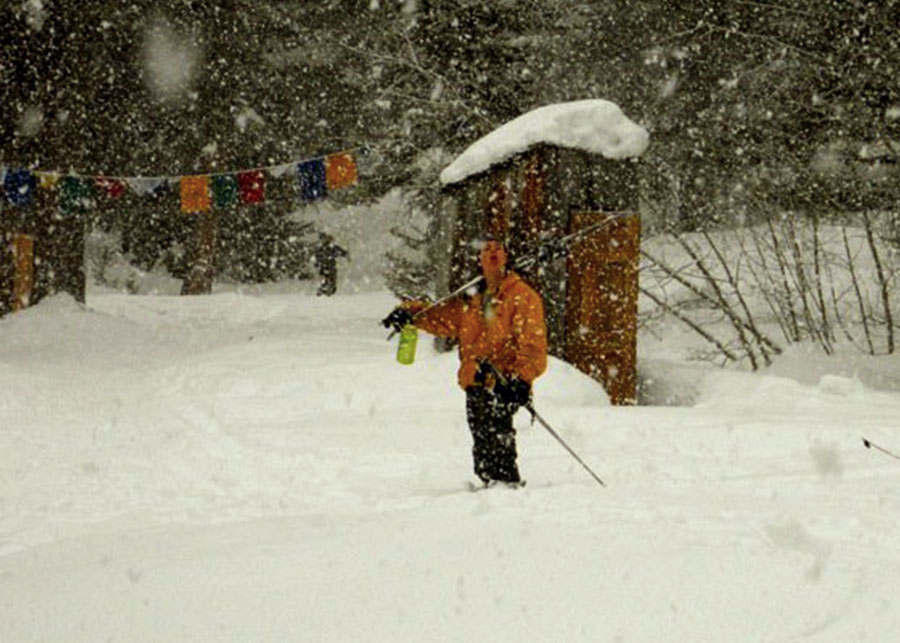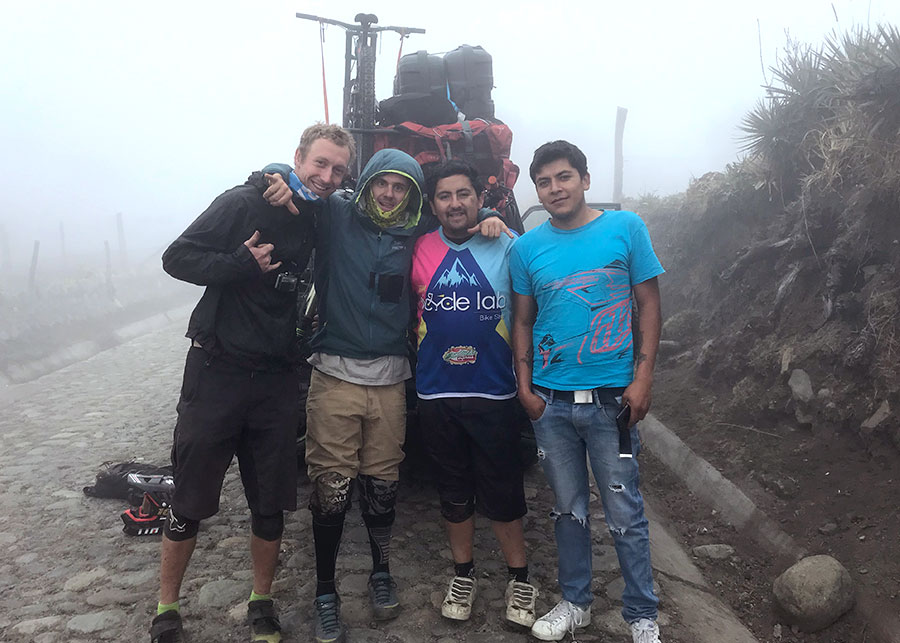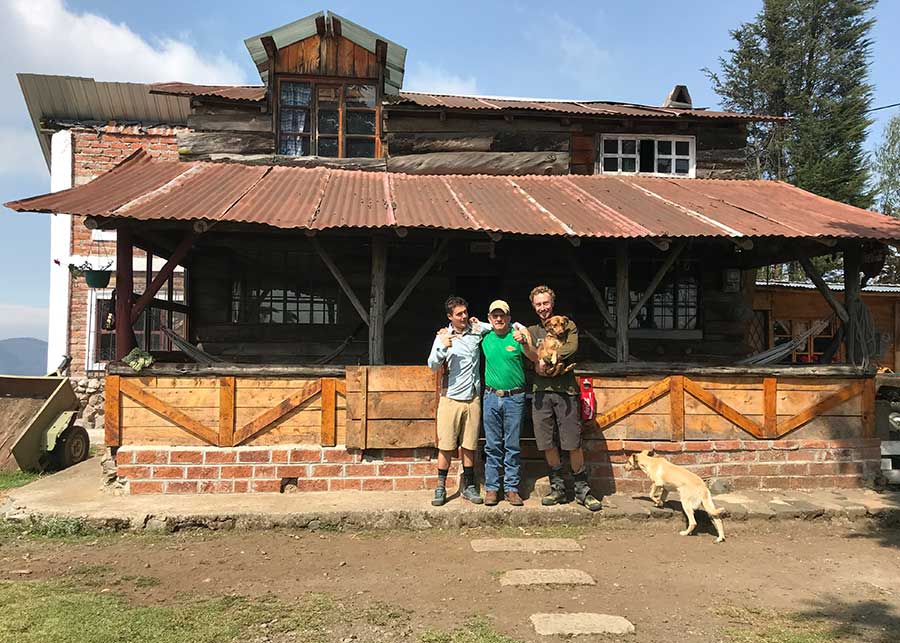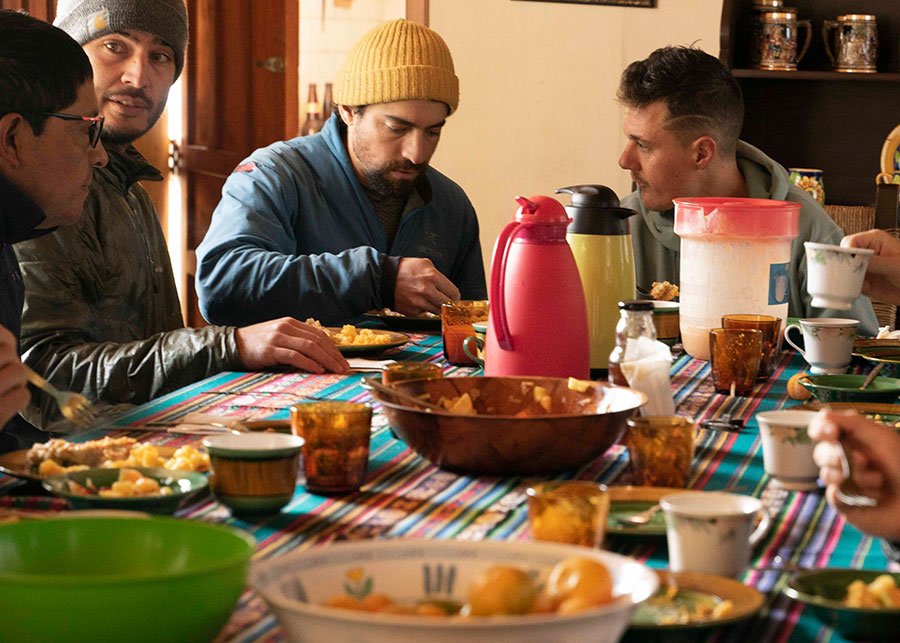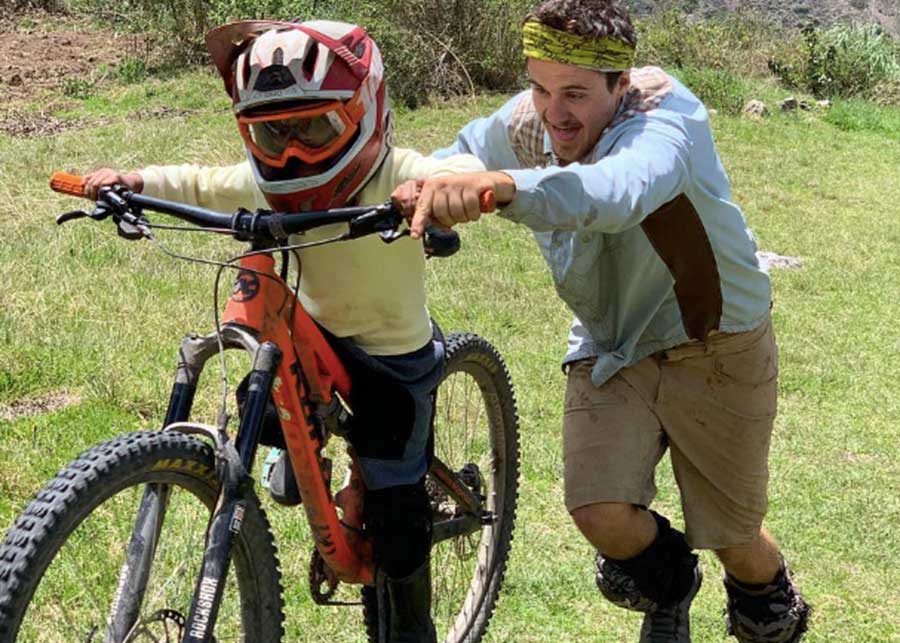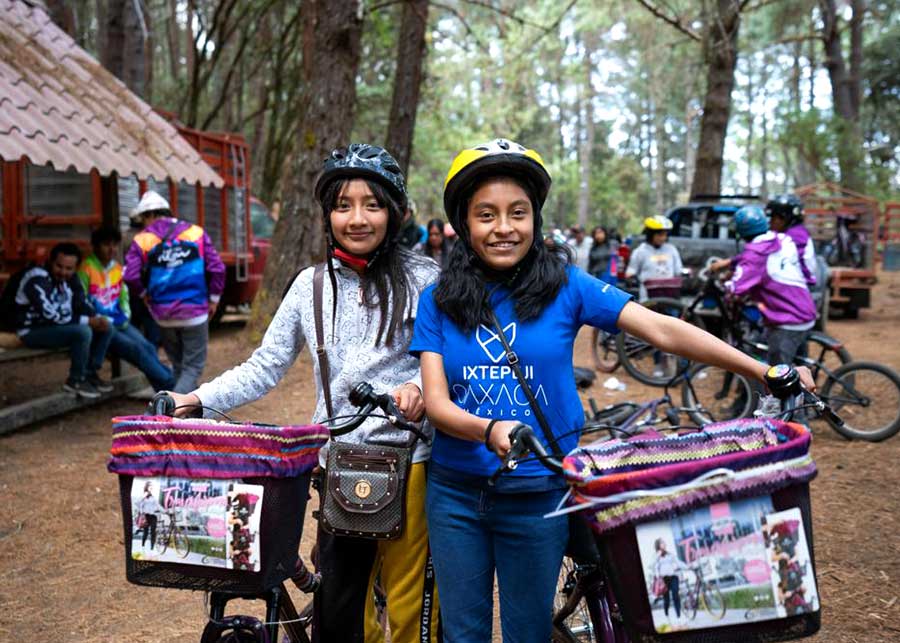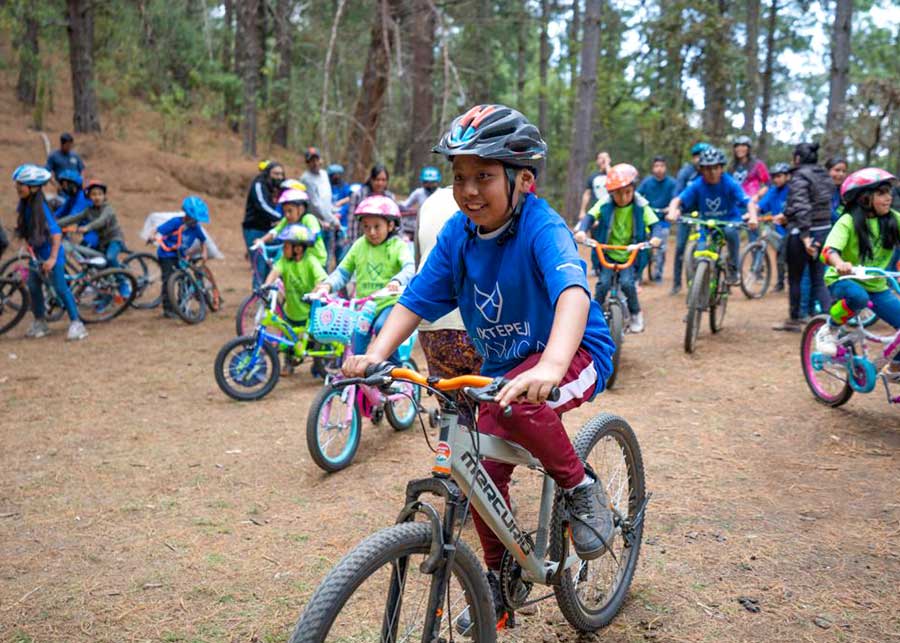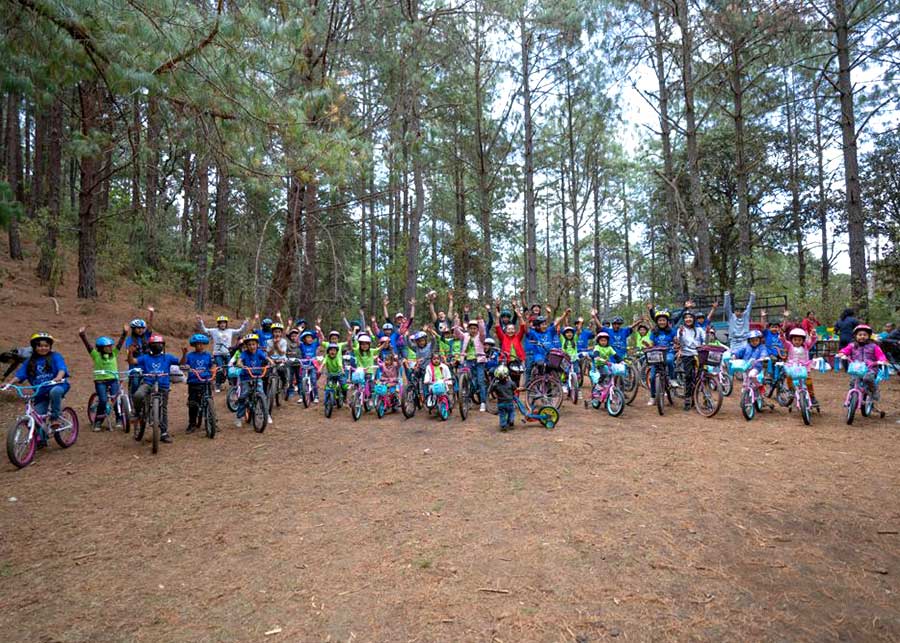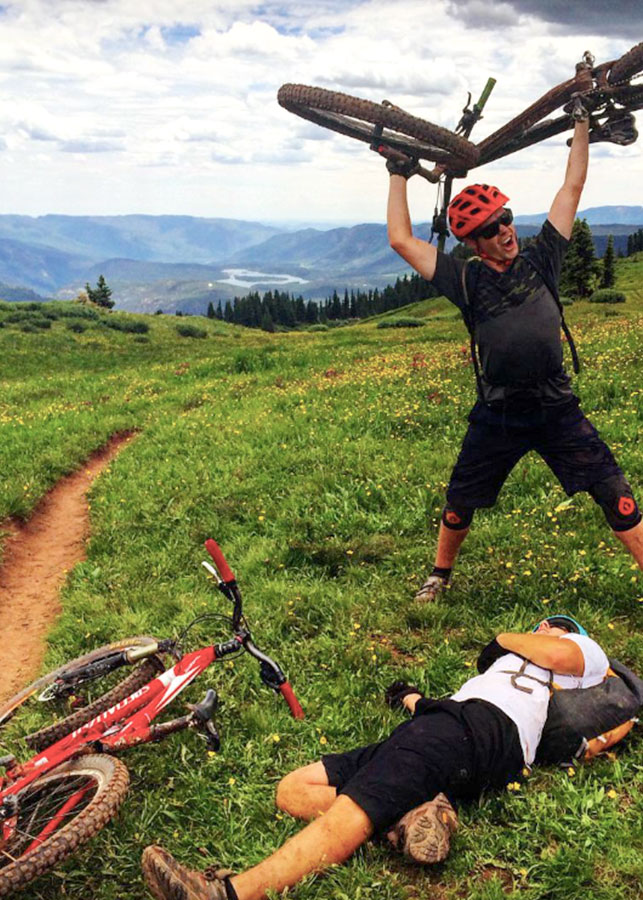Romanticism collided with ideals, and the aftermath served as the foundation of his life’s work. A new-found penchant for unexplored topography brought him to the ancient Incan trails, pueblos, and indigenous people of Latin America. Their way of life perplexed then enthralled him. Exposed to the organic truths about art, culture, food, land preservation, and human connection, Tony dreamed of bringing more people to this magical place. And the kiddos he met along the way—smiling ear-to-ear while popping wheelies on clapped-out, too-small bikes? Those kiddos sent him over the top.
In his moments of reflection, passion melded with acumen and a plan took shape. Connecting mountain bikers with unspoiled single track was one thing, but connecting cultures through riding, art, and the collective experience of proximity and curiosity—that was something else. What if, through these experiences, you could give bikes to indigenous children to ride? Then teach them to build up the trails in their cherished land with their own two hands? What if it were all to come full circle as cultures began to find syncopation?
This, perhaps, is what the wise old fish was talking about. Presence, connection, awareness—this is water.
In his own words, Tony discusses the upbringing that propelled him outward, toward the dusty trails and powder fields, away from his world of expectations and fortunes foretold.
Have you ever seen this meme—all sorts of different animals lined up. Then there’s a table with three teachers sitting at it. They’re saying “Everyone’s gonna climb this tree. That’s today’s exam”. There’s an elephant, a fish, a monkey, a snake, a bird, and they’re not all climbing that tree. They represent different personalities. They don’t all act the same way or do the same things. I was the elephant or the fish. I didn’t do well (in school) until I got older because my personality and learning style wasn’t based on sitting and studying all the time.
The wilderness aspect of the school that I went to, that’s where I thrived. It was evident which students were going to go on to Stanford and Yale and million-dollar salaries. But it was also clear who was going to go on to make million-dollar memories.

